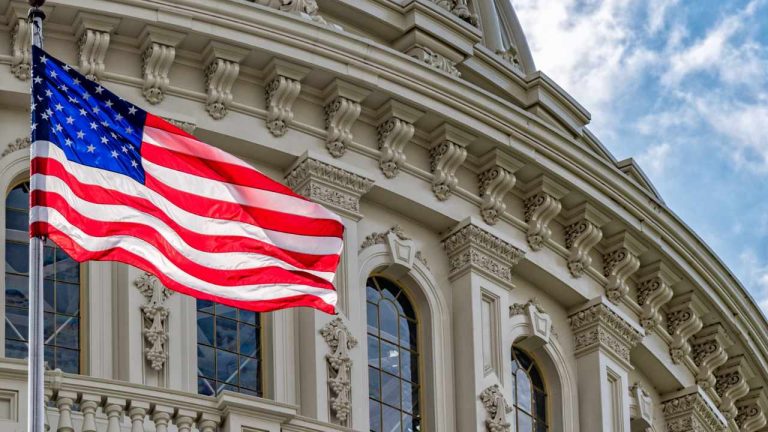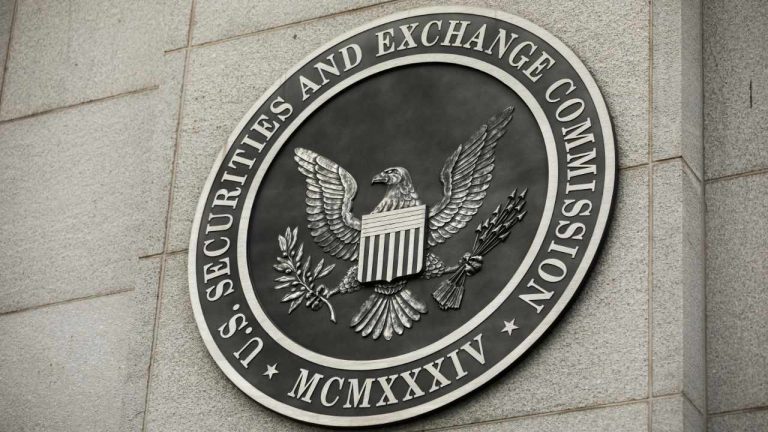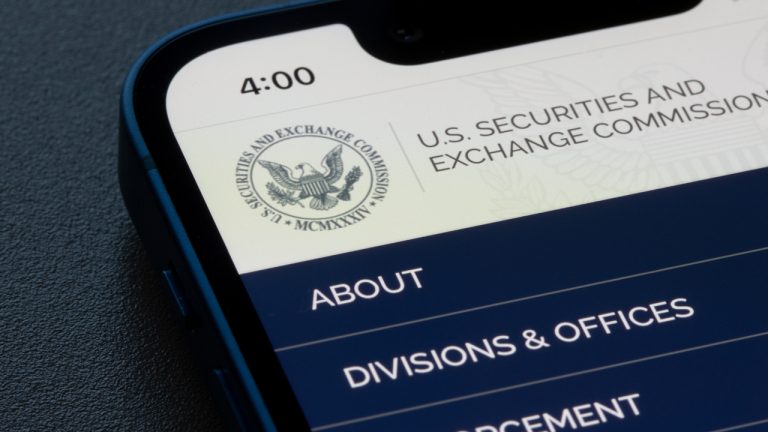
The Swiss-based bank had ties to the TrueUSD stablecoin issuer, Techteryx, crypto asset manager CoinShares and reportedly Binance.
FlowBank, an online Swiss bank that offered cryptocurrency trading services, has been shut down and forced into bankruptcy after the Swiss financial regulator found it “seriously breached” standards required for it to operate as a bank.
“This measure became necessary as the bank no longer has the minimum capital required for its business operations,” the Swiss Financial Market Supervisory Authority said in a June 13 statement.
There’s “no prospect of a restructuring,” and there are “fears that the bank is over-indebted,” FINMA added.

The U.S. politicians have accused Nigeria’s government of charging Gambaryan, a Binance compliance officer and former federal agent, with “baseless” crimes.
Several United States politicians have reportedly asked President Joe Biden and the hostage affairs unit to try to bring Binance employee Tigran Gambaryan home, who has been held in Nigeria for over three months on charges of money laundering and tax evasion.
In a June 4 letter addressed to President Biden, Secretary Antony Blinken, and the Presidential Envoy for Hostage Affairs Roger D. Carstens, 12 U.S. politicians stressed that Gambaryan remains “wrongfully detained” by the Nigerian government and that action needs to be taken now before the situation worsens.
The U.S. politicians specifically want the Special Presidential Envoy for Hostage Affairs to handle Gambaryan’s case, the letter said, which was shared on X by Fox Business reporter Eleanor Terrett.
 Coinbase, Inc. has escalated its dispute with the Securities and Exchange Commission (SEC) by filing a reply brief in the Third Circuit Court of Appeals, arguing the necessity of clear rulemaking for the digital asset industry. The case underscores the ongoing tensions between regulators and the digital asset sector over compliance and operational standards. Coinbase […]
Coinbase, Inc. has escalated its dispute with the Securities and Exchange Commission (SEC) by filing a reply brief in the Third Circuit Court of Appeals, arguing the necessity of clear rulemaking for the digital asset industry. The case underscores the ongoing tensions between regulators and the digital asset sector over compliance and operational standards. Coinbase […] The U.S. House of Representatives has passed H.J. Res. 109, a resolution aimed at overturning the Securities and Exchange Commission’s SAB 121 regulations on digital assets. The resolution seeks to reduce regulatory burdens and promote safer custodianship of digital assets by regulated banks. However, the White House has backed the SEC, issuing a veto threat, […]
The U.S. House of Representatives has passed H.J. Res. 109, a resolution aimed at overturning the Securities and Exchange Commission’s SAB 121 regulations on digital assets. The resolution seeks to reduce regulatory burdens and promote safer custodianship of digital assets by regulated banks. However, the White House has backed the SEC, issuing a veto threat, […] Coinbase’s chief legal officer has publicly urged U.S. Securities and Exchange Commission (SEC) Chair Gary Gensler to stop misleading the market regarding crypto tokens being securities. His request followed Gensler’s repeated assertions that numerous crypto tokens conform to the legal definition of securities, thereby requiring compliance with SEC regulations. Coinbase’s CLO to Gensler: Please Stop […]
Coinbase’s chief legal officer has publicly urged U.S. Securities and Exchange Commission (SEC) Chair Gary Gensler to stop misleading the market regarding crypto tokens being securities. His request followed Gensler’s repeated assertions that numerous crypto tokens conform to the legal definition of securities, thereby requiring compliance with SEC regulations. Coinbase’s CLO to Gensler: Please Stop […]
Nexo looks to keep pace with regulatory requirements by implementing new certification requirements for its compliance team.
As regulatory scrutiny continues to circle the wider Web3 ecosystem, cryptocurrency lending platform Nexo will look to leverage training resources, connections and data by joining the Association of Certified Sanctions Specialists (ACSS).
The association offers training and certification for sanctions professionals across a variety of industries including financial institutions, international corporations, law firms, public institutions and a host of other businesses.
The ACSS certification is intended to be universal and does not focus on specific jurisdictions or industries. Sanctions specialists that complete the examination are deemed to be multiskilled across policy, due diligence, screening, compliance and investigations.
An announcement shared with Cointelegraph outlined that Nexo will require its compliance staff to be ACSS certified. Nexo’s compliance head, Savina Boncheva, said that the firm intends to maintain stringent compliance standards as the crypto industry continues to expand:
“Teaming up with ACSS allows us to elevate our sanctions compliance to a degree endorsed by a renowned industry body, whilst fostering opportunities for our compliance team’s growth.”
The increased compliance measures come after Nexo acquired an American Institute of Certified Public Accountants certificate. This came after the firm completed a Service and Organization Controls 2 Type 2 Compliance audit, which is a financial industry measure of client data protection.
In February 2023, Nexo announced the termination of its yield-bearing Earn Interest product in the United States after paying $45 million in penalties to the Securities and Exchange Commission and the North American Securities Administrators Association.
Related: Nexo agrees to $45M settlement with SEC and states over Earn product
Nexo was investigated by the SEC and 17 state securities regulators over its Earn product. The company paid $22.5 million in penalties to the SEC as well as the same sum in fines to settle state regulator charges. The company did not admit or deny the findings.
In late 2022, the company announced that it would wind down its operations in the U.S., citing regulatory uncertainty as a barrier to ongoing business operations in the country.
Nexo’s effort to forego compliance requirements and registrations in various jurisdictions around the world has come in tandem with other major cryptocurrency exchanges and service providers.
The likes of Binance.US and Coinbase have also been under the spotlight of the SEC over alleged securities violations. Meanwhile, cryptocurrency exchanges and platforms continue to apply for licenses or permits in various jurisdictions around the world.
Collect this article as an NFT to preserve this moment in history and show your support for independent journalism in the crypto space.

Mark Cuban thinks the SEC could have saved U.S. customers from FTX had it adopted Japan’s approach to crypto regulation, but John Reed Stark disagrees.
Billionaire entrepreneur Mark Cuban has again locked horns with former securities chief John Reed Stark, this time over who was ultimately to blame for FTX’s collapse and the impact on creditors.
During a heated back-and-forth exchange, Cuban argued had the United States Securities and Exchange Commission set “clear regulations,” no one would have lost money from its collapse.
Stark earlier suggested cryptocurrency and stablecoins — including central bank digital currencies — solve no problems and that the crypto industry operates without regulatory oversight, consumer protections and audits, among other things.
You should read up on how Japan deals with regulation. https://t.co/yHCVwZAqvG
— Mark Cuban (@mcuban) July 4, 2023
When FTX crashed, NO ONE IN FTX JAPAN LOST MONEY.
If the USA/SEC had followed their example by setting clear regulations that required the separation of customer and business funds and clear… https://t.co/Msvn9o9PCU
Cuban argued that Japanese regulators — an increasingly Web3 friendly jurisdiction — are an example of a regulator that has done it right.
“When FTX crashed, NO ONE IN FTX JAPAN LOST MONEY,” he said.
Stark — a cryptocurrency skeptic — shot back, saying it “seems a bit of a stretch” to blame the SEC for the collapses of FTX, BlockFi, Celsius, Terra and Voyager, or what he called “dumpster fires.”
While Stark conceded that the SEC isn’t always right, he claimed the regulator saved investors “millions, perhaps even billions” in crypto losses.
The ex-SEC official claimed while the cryptocurrency industry seeks regulatory clarity, whenever rules are promulgated or proposed, “the crypto industry cries foul” and often responds by filing a “flashy legal challenge to its enactment.”
Cuban hit back, explaining the “best way” to prevent cryptocurrency fraud is to implement “brightline investor protection regulations.” He added:
“Anyone who doesn't register is de-facto in violation, can't operate and will be shut down. That's how you protect crypto investors.”
Stark, however, claims that the SEC only charged the likes of Binance, Coinbase, Beaxy and Bittrex months after the regulator made it clear that those firms were not in compliance.
Related: Lawmakers are wrong to target Gary Gensler
“[These firms] opted to ignore the SEC — and reap profits for as long as possible without registering,” Stark added.
That is worthy of study Mark, thanks.
— John Reed Stark (@JohnReedStark) July 4, 2023
The laws in Japan require crypto exchanges to register with authorities, to keep customer money separate from their own accounts, to hold at least 95% of customers’ digital assets in a cold wallet and to entrust clients’ holdings of…
It is the second time in three weeks that the pair have clashed over how cryptocurrency should be regulated.
On June 11, Cuban called out the SEC for purportedly failing to provide cryptocurrency firms with a clear registration process.
He claimed it’s “near impossible to know” what constitutes security because the SEC’s “Framework for ‘Investment Contract’ Analysis of Digital Assets” document fails to explain how cryptocurrency firms can come into compliance.
Magazine: Unstablecoins: Depegging, bank runs and other risks loom
 According to a recent report, the cryptocurrency exchange Bittrex received a Wells notice from the U.S. Securities and Exchange Commission (SEC) in March, signaling a potential lawsuit. The SEC’s enforcement division sent the Wells notice prior to Bittrex deciding to wind down its operations in the United States. ‘Lack of Regulatory Clarity’ in the U.S. […]
According to a recent report, the cryptocurrency exchange Bittrex received a Wells notice from the U.S. Securities and Exchange Commission (SEC) in March, signaling a potential lawsuit. The SEC’s enforcement division sent the Wells notice prior to Bittrex deciding to wind down its operations in the United States. ‘Lack of Regulatory Clarity’ in the U.S. […] Following the collapse of Silvergate Bank, Silicon Valley Bank, and Signature Bank, cryptocurrency companies have been seeking new banking partners in the United States. According to a recent report citing “sources familiar with the matter,” Binance US, the American subsidiary of the cryptocurrency exchange, is having difficulty finding a U.S. banking partner. Unnamed Sources Say […]
Following the collapse of Silvergate Bank, Silicon Valley Bank, and Signature Bank, cryptocurrency companies have been seeking new banking partners in the United States. According to a recent report citing “sources familiar with the matter,” Binance US, the American subsidiary of the cryptocurrency exchange, is having difficulty finding a U.S. banking partner. Unnamed Sources Say […]
The firms were cited anonymously in the CFTC’s complaint describing Binance’s alleged facilitation of U.S. clients.
Trading firms Jane Street Group, Tower Research Capital and Radix Trading have been reportedly identified as Binance’s three “VIP” clients that were anonymously cited in the recent lawsuit filed against Binance by the United States commodities regulator.
According to an April 5 Bloomberg report citing “people familiar with the matter,” Radix Trading is “Trading Firm A” as described in the Commodities Futures Trading Commission’s (CFTC) suit, while Jane Street was “Trading Firm B” and Tower Research was “Trading Firm C.”
The firms on the CFTC’s list were examples of U.S. clients allegedly able to access Binance.
The Wall Street Journal (WSJ) first reported on March 28 that Radix Trading was “Trading Firm A.”
Radix co-founder Benjamin Blander told the WSJ in a March 30 report that he believed the firm acted legally even when trading with Binance’s offshore entity.
The claimed “VIP” treatment from Binance included lower transaction fees and faster trading services, the CFTC said in the filing. The firms provided Binance with liquidity on the exchange, and Binance gained the corresponding trading fee revenues.
Today the CFTC charged Binance and its founder, Changpeng Zhao, with willful evasion of federal law and operating an illegal digital asset derivatives exchange. Learn more: https://t.co/DdczFgvW6A
— CFTC (@CFTC) March 27, 2023
It was part of a strategy that “actively facilitated violations of U.S. law” by helping U.S. trading firms evade Know Your Customer compliance standards, among other things, the CFTC alleged.
Binance allegedly enabled Radix to sidestep compliance controls by providing them information on accessing Binance.com through a virtual private network to obscure its IP address.
Related: Dubai regulator demands Binance provide info on ownership, governance: Report
The CFTC claimed the trading violations to have come about as Binance prioritized “commercial success over compliance with U.S. law.”
However, Binance CEO Changpeng “CZ” Zhao vehemently denied the claims of compliance and market manipulation violations in a follow-up post on March 28.
CZ’s Response to the CFTC Complainthttps://t.co/iIoDR70IT9
— Binance (@binance) March 27, 2023
Magazine: US enforcement agencies are turning up the heat on crypto-related crime